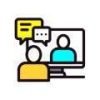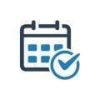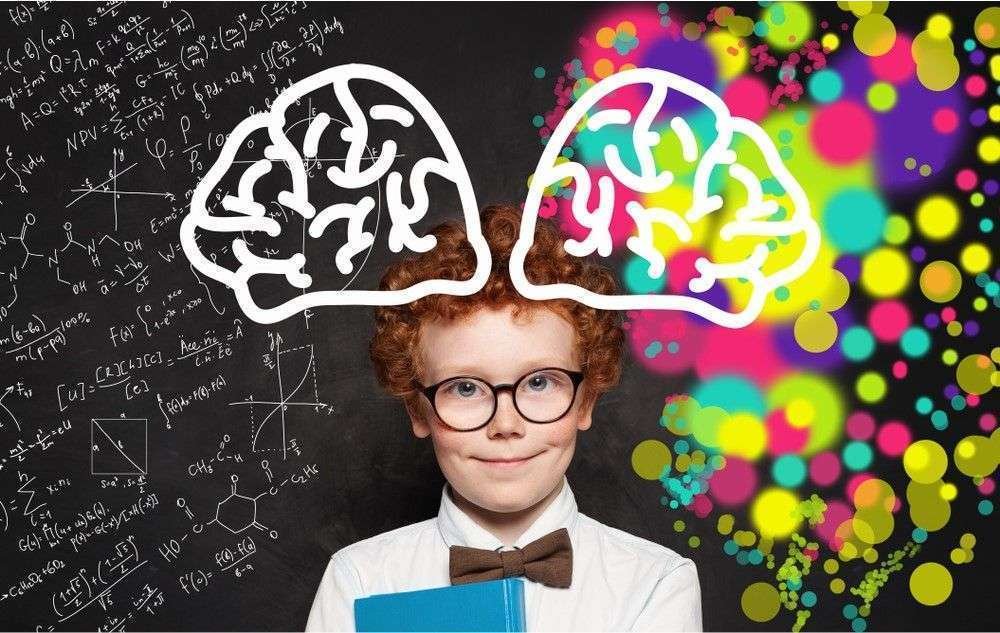GET 10% OFF ON FIRST ORDER USE CODE: WELCOME10 | Min. Cart Value Rs 499
GET 10% OFF ON FIRST ORDER USE CODE: WELCOME10 | Min. Cart Value Rs 499
Unlock Learning Success: Discover The Benefits Of Flashcards

Understanding Flashcards and Early Childhood Education
Flashcards are educational tools consisting of cards bearing information, typically on both sides, used as aids in memorization. They may include a picture on one side and a description or explanation on the other. They may also feature a word or a phrase on one side, and its translation, synonym, or antonym on the reverse side. The benefits of flashcards in facilitating recall cannot be overstated.
Early childhood education refers to the teaching of children (generally, from birth to age 8). Notably, the right instruction during this phase has myriad positive impacts on a child’s abilities and perception towards learning. Effective early childhood teaching strategies are vital to shaping the child’s cognitive, emotional, and social development.
Flashcards, in this context, play a significant role. Deploying flashcards in early childhood education aids in visual memory recall, improves language skills, and increases engagement. They also provide the bandwidth to accommodate various individual learning styles, hence underlining the numerous benefits of flash cards in this stage.
Cognitive and Language Development through Flashcards
One of the key benefits of flash cards is their ability to enhance cognitive development. Specifically, flashcards aid in memory recall through frequent repetition, making learning more efficient and effective. By repeatedly reviewing the flashcards, young learners progressively reinforce their memory, positively impacting cognitive function development.
Moreover, flashcards significantly impact vocabulary enhancement. They introduce new words and their meanings, thereby augmenting a child’s vocabulary. This tool also offers the flexibility of illustrating abstract concepts with vivid images, further enriching the child’s comprehension.
Further, flashcards actively encourage language development. They prompt the child to articulate words and phrases, thereby developing their linguistic abilities. In essence, the benefits of flashcards in early childhood education stretch beyond mere word recognition to fertile language growth.

Flashcards and Visual Learning: A Perfect Match
The benefits of flash cards in connection with visual learning are in their ability to create a RICH visual memory aid. Young learners have a propensity towards visual stimuli. Hence, vibrant, color-rich, visually appealing flashcards act as effective catalysts in early childhood learning.
Flashcards, with their color, texture, and imagery, help create visual anchors in a child’s mind. These anchors, in turn, facilitate easy recollection and understanding of information. Further, flashcards accommodate and address different learning styles, including visual, auditory, and kinesthetic. As such, they cater to diverse learner profiles.
Practical Tips to Effectively Use Flashcards in Teaching
To maximize the benefits of flashcards, it’s essential to create child-friendly flashcards that resonate with the young learners. Flashcards should be simple, visually appealing, and easy to grasp. Literal images, noticeable fonts, and bright colors often interest children. Consequently, learners easily remember the information appended to them.
Additionally, presenting flashcards in a captivating way is crucial to the learner’s absorption. Interactive methods, including games and songs, can make flashcard learning enjoyable. Regular, short and diverse flashcard sessions make learning attractive, ensuring the learner is always engaged.
Finally, it’s important to track progress and rejuvenate learning with flashcards for effective teaching. Revisiting old flashcards from time to time reinforces memory and boosts confidence in the learner. As the child gradually masters each set of cards, introduce new ones, keeping the learning process challenging enough to maintain interest.

The Long-term Impact of Flashcards on Children's Education
One of the significant benefits of flashcards lies in their ability to prepare children for advanced learning. Hence, they cultivate a robust learning foundation making future education easily comprehensible to a child. Flashcards not only help develop a solid grounding but also infuse an appetite for learning, producing long-term benefits on a child’s education pathway.
Acquiring a set of flashcards relative to its educational output is a worthwhile investment. It is an inexpensive resource compared to many other learning tools, while coming with the gratification of witnessing a child’s cognitive and language skills bloom. This advantage makes the benefits of flashcards irreplaceable.
Potential Challenges and Solutions When Using Flashcards
While flashcards bring a range of benefits, there could be potential drawbacks when applied ineffectively. There’s a risk of frustrating a learner if flashcards are overused, leading to a mundane learning routine. Incorporating different activities and diverse methods helps prevent the child from getting overwhelmed.
Another challenge is the possibility of fostering over-reliance on flashcards for memorization. To counter this, integrate flashcards alongside other teaching resources. This broad-based approach will imbue a child with various methods of knowledge acquisition, maximizing the benefits of flash cards.
Case Studies Showing the Success of Flashcards in Early Childhood Education
The success of flashcards surfaces in various case studies worldwide. For instance, studies show that learners who frequently use flashcards for learning surpass peers who don’t, in both language and cognitive development. Through these case studies, the benefits of flashcards in early childhood education are evidenced whether at home or in school settings.
Further, the impact assessment of flashcards reveals impressive success rates. Most children who use flashcards frequently show clear and speedy progress in their learning journey. Case studies comparing flashcard taught children with peers who employed other methods showcase the efficiency and effectiveness of flashcards.
Therefore, these case studies can extrapolate to other educational settings, providing a convincing argument for the wider adoption of flashcards in early childhood education.

Conclusion and the Future of Flashcards in Early Education
Flashcards have remarkably demonstrated their primacy in early childhood education. The evidence overwhelmingly points to the numerous benefits of flashcards in enhancing memory, enriching vocabulary, and promoting overall language development. As technology advances, future flashcard designs will likely be more interactive, dynamic, and personalized for individual learning patterns. Also, ongoing research in cognitive science continuously provides insights to refine flashcard teaching methodologies, leveraging the innate benefits of flash cards
FAQs
What are the key advantages of using flashcards in early childhood education?
How do flashcards promote cognitive development in young children?
Can flashcards help in the improvement of language skills during early childhood years?
Why should parents consider integrating flashcards into their child's daily learning routine?
Related Blog
Free shipping
Free Returns
Secured Payments

SpartanKids are like one big family with a goal in mind to help make a smarter generation and optimize the experiences of students, teachers and families.
Our Products
Get Newsletter

Copyright 2022 © Spartan Kids. All rights reserved.
Design & Developed By : Spartan Branding | Disclaimer








